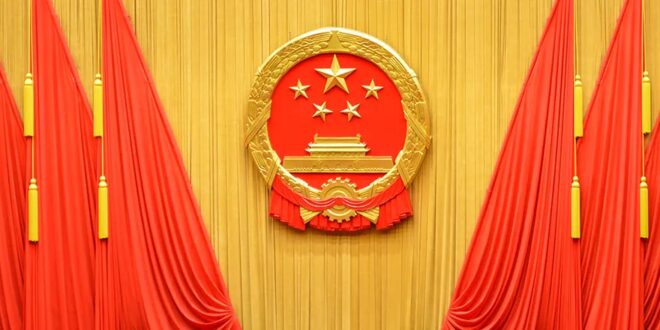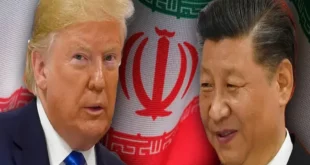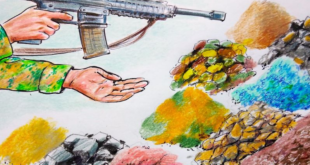Undoubtedly, China’s communists have achieved a great deal. But the party remains nervous about its hold on power, and hesitant to implement necessary political and economic reforms.
Given the inauspicious start of the Chinese Communist Party (CCP) – worried about police surveillance, it moved its founding meeting from Shanghai to a lake 100 km away – it is a considerable achievement to have reached its centenary, and to have grown from a mere 50 individuals to 92 million members.
An ability to adapt and be flexible enabled the CCP to survive and thrive, and to move from rural revolution to capturing the country. Despite the murderous mayhem of Mao’s Great Leap Forward, the Great (Mao-made) Famine and the Cultural Revolution – events in which nearly 40 million Chinese died – and despite the turmoil of 1989, the Party has ruled for 72 years. Deng Xiaoping’s flexibility in economic policy and Jiang Zemin’s adaptability in welcoming capitalism and entrepreneurs into the bosom of the Party allowed the Chinese people to build the powerful country which China has become.
Some think that the 21st century will be the ‘Chinese century’. Xi Jinping himself is loudly confident that by 2049 – the centenary of the establishment of the People’s Republic of China – the country will have achieved the goal of building ‘a modern socialist country that is prosperous, strong, democratic, culturally advanced and harmonious’.
Xi Who Must be Obeyed
Whether this second centenary will be celebrated with the braggadocio of this year’s anniversary depends on the success of reform. That reform is essential was clear to former Premier Wen Jiabao, who remarked in 2007: ‘The Chinese economy still has some major problems, namely unstable, unbalanced, uncoordinated and unsustainable problems’. Six years later, Xi repeated this formula (minus ‘unstable’, for him an admission too far) in his explanation of the economic reforms of the Third Plenum in 2013. In other words, the ‘China model’ had driven up a cul-de-sac and needed to find another road. Without reform, there would be no Chinese century.
Consequently, Xi has presided over four massive areas of reform: the Party itself (starting in 2012 – before he was anointed), the economic system (2013), rule by law (2014) and the People’s Liberation Army (PLA, 2015). Xi brought ongoing and mild experiments in a fifth area, political reform, to an abrupt halt: Party Central, not democracy, was to be strengthened.
In three of these areas, it is fair to say that Xi has been successful. Working to the deadline of its own centenary this year, the CCP has reformed over 58% of the regulations governing itself. As Glasgow University’s Holly Snape has shown, the aim is both to improve governance more widely than just inside the Party (in Xi’s Leninist state, the ‘Party leads everything’), and also to reinforce the Party’s leading role in the law (Holly Snape, ‘The Chinese Communist Party at 100: adaptable and abiding’, in press). A continual war on corruption and discipline has been a rigorous concomitant. The CCP is undoubtedly ‘leaner and meaner’ than nine years ago.
Less attention has been paid to the 2014 reforms centring on rule by law. They are important and they have made progress. Their intention was to improve trust in the business and financial spheres, as well as in social relations (as was the case for the social credit system, which should not be mistaken for the surveillance panopticon). The intention was also to affirm the Party centre’s control over the law, something which Xi has ceaselessly emphasised. Laws relating to human rights, political dissent and challenges to the CCP’s control are always to remain the Party’s prerogative. While there is a long way to go, law in areas such as intellectual property, the environment, business and more has improved, and the judiciary is more professional.
The third area of success, at least from the CCP and Xi’s point of view, is military reform. The Gutian conference of late 2014 ended any suggestion that the PLA was to become a national army, as opposed to belonging to the Party. Reforms begun in early 2015 started the process of turning the PLA into what Xi hopes will be a world-beating force. The People’s Armed Police (PAP), formerly answering both to the Central Military Commission (CMC) and local governments, is now under the CMC alone. Most PLA and PAP generals are now Xi’s men. Given that ‘power comes from the barrel of the gun’, that counts as a success – at least in Xi’s terms.
Economic Reforms Stumble
But the most important reforms for achieving the second ‘centenary goal’ relate to the economy. If it remains ‘unbalanced, uncoordinated and unsustainable’ – and (whisper it) ‘unstable’ – then the goal of becoming a ‘modern socialist country’ will recede like a mirage: a strong power needs a strong economy to support it. The challenges are immense, including how to deal with such issues as inadequate social security and health provision; debt and falling productivity; a falling population and greater dependency rates; water scarcity in northern provinces, climate change and pollution; inadequate education (only 30% of the current workforce has finished secondary education); and neglect of children in their early years (70% are in the countryside), which makes adult and vocational education very difficult in later years.
So far, progress in the major areas of economic reform has been insufficient. What the CCP says in 2021 about measures to reform the state-owned sector differs little from what it said in the years immediately after 2013. For example, the problem of local governments being responsible for around 80% of expenditure while garnering only 50% of income remains where it was despite a 2016 deadline for reform. Even relatively simple reforms, such as pushing back very early retirement ages or introducing a property tax, have proved too problematic (retirement, because of popular protest; property tax, because it would require too many Party members to explain how their salaries permitted their house purchases).
Xi has enforced a policy of ‘positive energy’, which means only reporting good news. Before that became set in stone, in 2017 an unusually candid book was published by the Institute of Economic System and Management, a think tank belonging to the National Development and Reform Commission, the high-level body in charge of economic reform. Its title was The Phenomenon of Reform Obstruction in China. What made it extraordinary was its admission that, over three years after reform was announced with such fanfare and urgency, little had been achieved. That remains the case another four years later. In a fine dissection of the lack of progress, Daniel Rosen of the Rhodium Group makes it clear that reform has been attempted, but has failed in many critical cases: faced with turbulence, on each occasion the CCP has drawn back.
Inherent Weaknesses
Part of the reason for the failure to reform is fear and fragility. Contrary to propaganda, the CCP is not the confident and successful vanguard of the people, as it seeks to project itself. If it were, it would not spend more on internal surveillance and control than it does on its military; it would not censor even petty criticisms. Popular though the Party undoubtedly is, that popularity could vanish if the people see the main prop to legitimacy, economic prosperity, disappearing. In an autocracy, protest directed at the rulers is the main means of expressing discontent. Moreover, reform is inherently unstable and must take on vested interests.
But failure may also reside in the inadequacy of the CCP’s model itself. The limits of earlier flexibility and adaptability have been reached. As an example, take the state sector versus the private sector. Xi has reinforced the former, while controlling more tightly the latter. Yet he is fully aware of the so-called ‘56789’ economic formula: the private sector supplies 50% of tax, 60% of GDP, 70% of innovation, 80% of employment and 90% of the number of enterprises. Still, CCP control of the private sector is important to the Party, since, unchained, money tends to seek power. Another example: a free press would be an effective tool in combatting corruption and abuse of power, or in exposing the breaking of environmental regulations; but it might shine a light on leaders’ activities. A vibrant civil society would be a fount of ideas and innovation, for example on environmental issues; but it could grow into a green movement or party.
In sum, political reform is an essential concomitant to economic reform. It does not have to be of the Westminster, Washington or Brussels variety; rather, it would be ‘Democracy with Chinese Characteristics’. ‘If a country wants to modernise, to realise a modern market economy, it must practise parliamentary democracy as its political system’. It would also require a long but determined transition, during which permitting the existence of other political parties and a free press would be essential (Zhao Ziyang, Prisoner of the State: The Secret Journal of Zhao Ziyang (UK edition), 2009, pp. 270 and 271–2). These are the words of former Premier Zhao Ziyang, written in captivity after the Tiananmen unrest of 1989. And he knew a thing or two about the CCP and China’s modernisation.
 Eurasia Press & News
Eurasia Press & News




